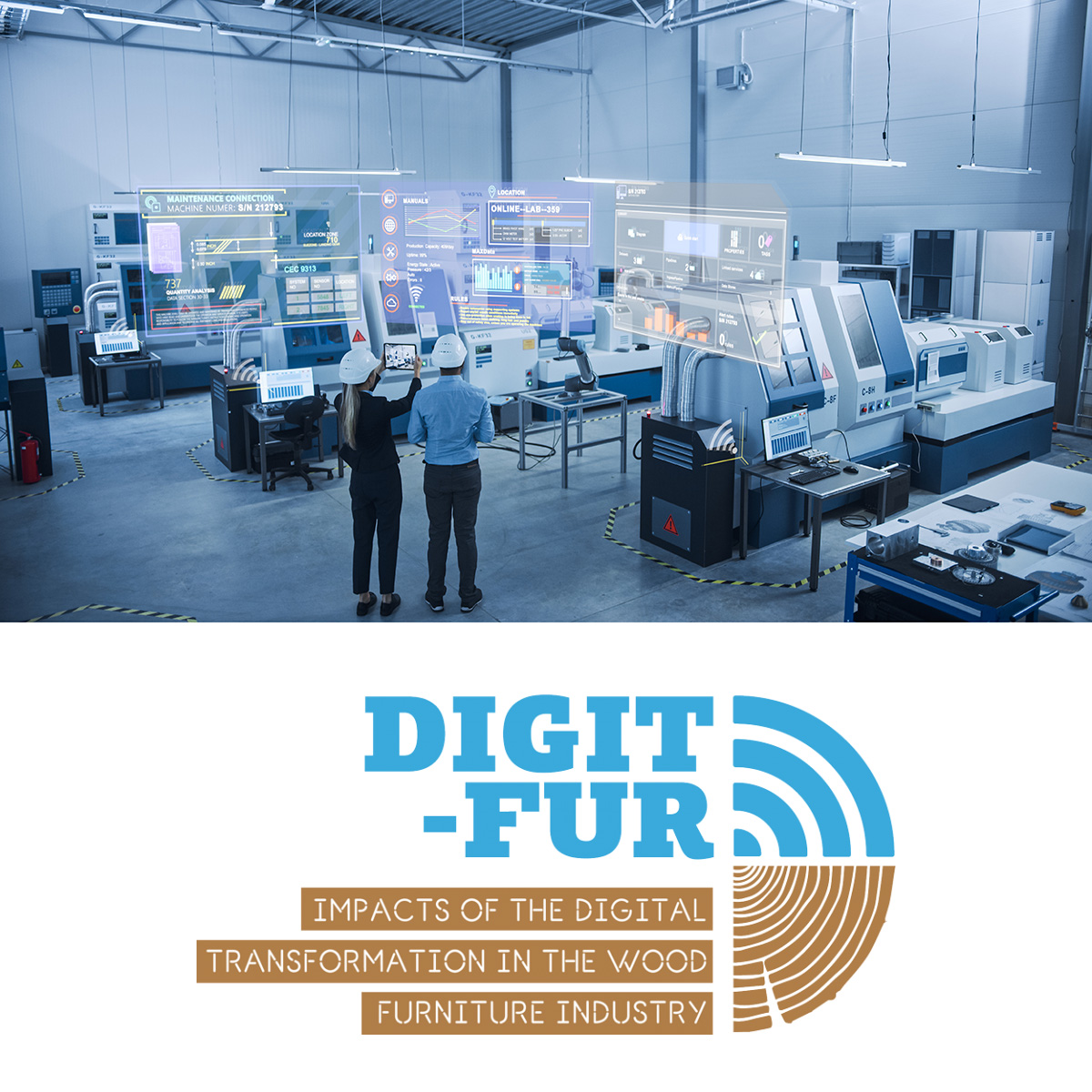Digital transformation is the integration of digital technologies along the whole value chain of a business.
Digital transformation is the integration of digital technologies into all areas of a company, modifying the way the companies operate and deliver value to customers. It also demands a cultural change that requires organizations to continually challenge the status quo, experiment, and get comfortable with failure.
The adoption of Industry 4.0 new technologies is believed to be one of the key drivers of change during this and next years for the European industries, together with the Circular Economy, this double transition is known as “Twin Transition”.
By 2025, with a massively connected and globalised economy, the wood furniture manufacturing industry will offer personalised smart products and services based on digital manufacturing, logistics and sales systems supplied by resource-efficient and sustainable industries with an immense need for enough digitization talents and skills securing a competitive transformation of the industry.
Most of the technologies can be used by SMEs as well as large enterprises, making them suitable for a large part of the European wood furniture industry. The biggest challenge to the wood furniture industry might well be the lack of available skills within engineering, science, technology and ICT.
Digitalization poses new challenges for occupational health and safety. New types of workplaces, new processes, new technologies can increase the safety and health of workers.
The impacts of digital transformation in the wood furniture industry has been studied, analyzed and compiled in the DIGIT-FUR project. You can access more information here.


 English
English  Français
Français  Italiano
Italiano  Magyar
Magyar  Español
Español 

